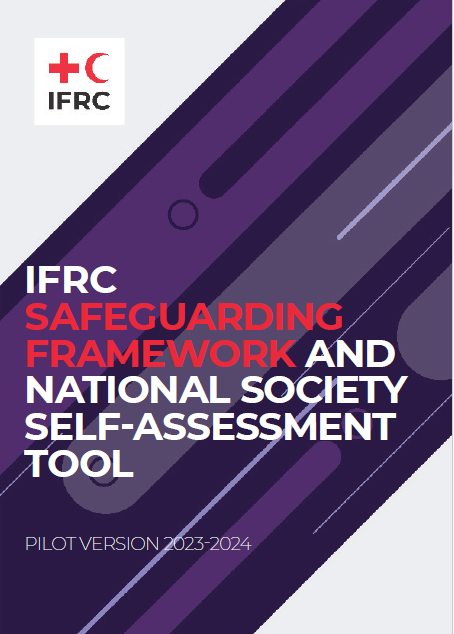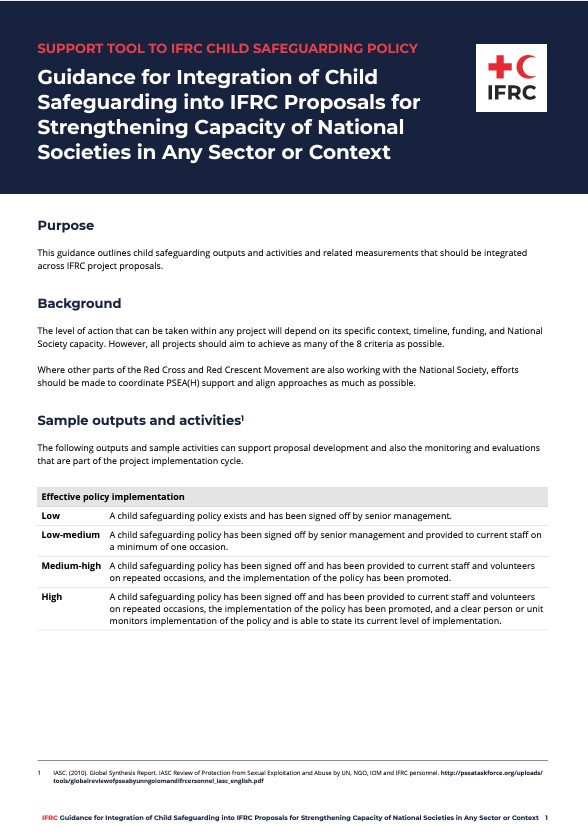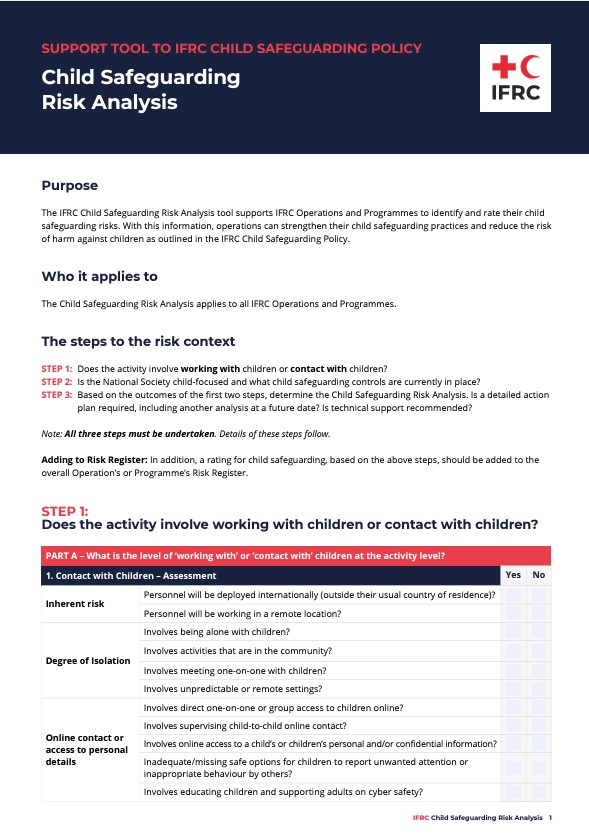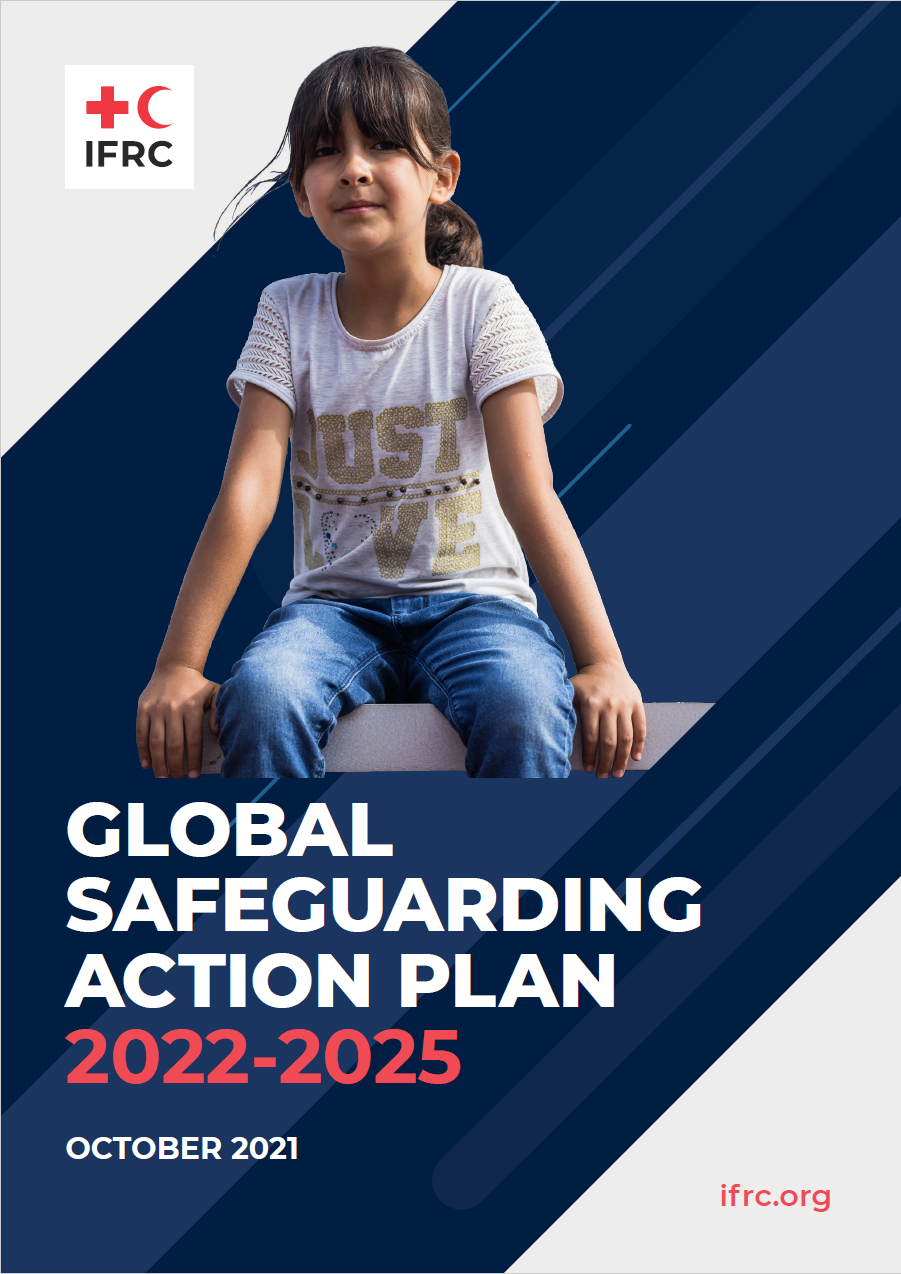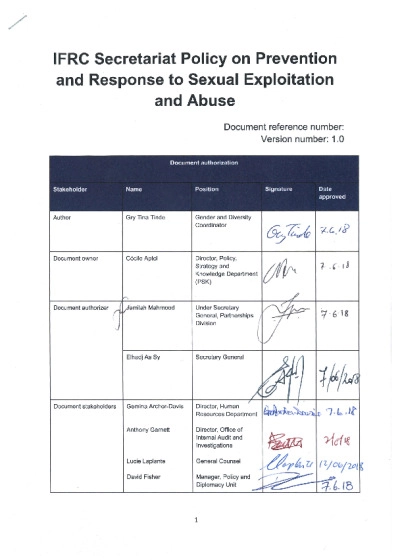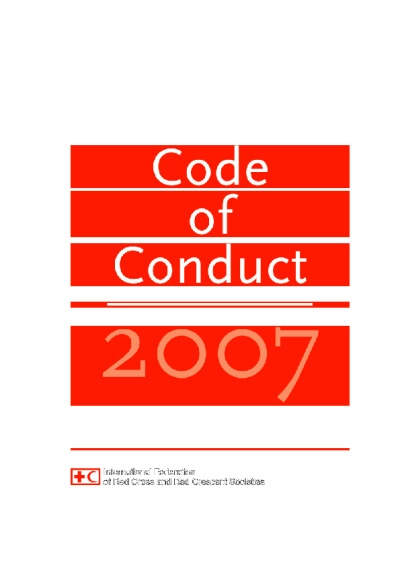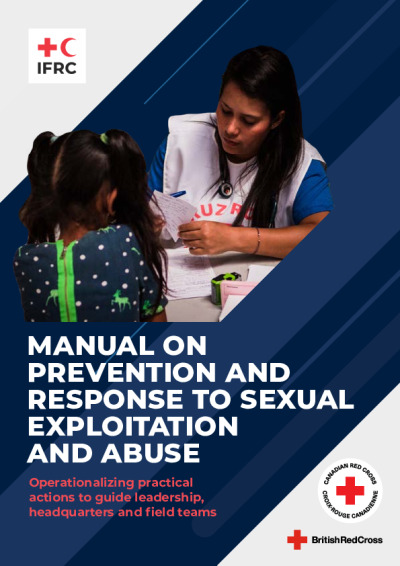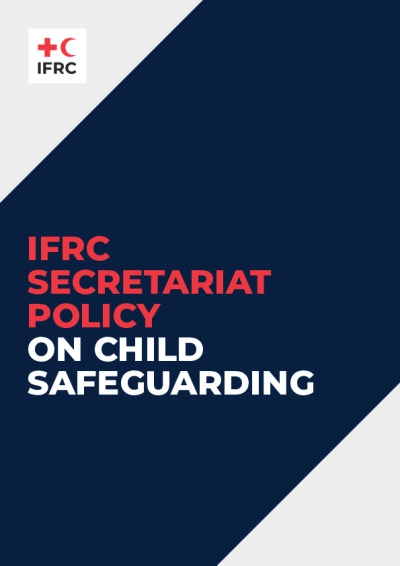This Safeguarding Hub supports the IFRC and National Societies to access resources and take action to strengthen safeguarding in our organisations and programmes.
The resources in this hub can assist IFRC and National Society personnel meet minimum operating standards on safeguarding in Red Cross and Red Crescent programmes.
The IFRC secretariat and network approach to Safeguarding is underpinned by the Fundamental Principles of humanity and impartiality and the principle of ‘do no harm’.
Our commitments to safeguarding are reinforced through statutory resolutions, pledges, strategy and policies, including, but not limited to:
- IFRC Strategy 2030
- International Conference Resolution 3: Sexual and gender-based violence: Joint action on prevention and response (2015)
- International Conference Pledge on Prevention and Response to Sexual Exploitation and Abuse and Sexual Harassment (2019)
- IFRC Staff Code of Conduct
- PSEA Policy
- Child Safeguarding Policy
- Gender and Diversity Policy
- Anti-Harassment Guidelines
- PGI Policy (coming soon)
- PGI Operational Framework (2022-5) (coming soon)
Safeguarding for the IFRC network refers to our responsibility in acting to keep people safe from any form of harm caused by the misuse of power by making sure that our staff, volunteers, programmes, and communications do no harm to children and adults, nor expose them to abuse or exploitation. Safeguarding also includes protecting staff from harm and inappropriate behaviour such as sexual harassment.
Prevention and Response to Sexual Exploitation and Abuse (PSEA) refers to policy, rules and actions intended to prevent IFRC Personnel from engaging in any form of sexual exploitation and abuse and to respond where it has occurred.

Child safeguarding refers to the broad obligation on IFRC personnel, partners, suppliers, and contractors to ensure that the design and delivery of programmes and organisational programmes are in the best interests of the child, do not expose children to adverse impacts, including the risk of violence, abuse, exploitation, or neglect and that any concerns about children’s safety within the communities where they work are appropriately reported and responded to.
Power imbalance is at the heart of safeguarding. Humanitarian workers hold enormous power, which can create the risk of exploitation and abuse. Sexual exploitation, abuse and sexual harassment involves certain groups and individuals within organizations exercising power in harmful ways against those less powerful.
Safeguarding within the IFRC network includes several key components:
- Sexual abuse and exploitation (SEA) of children and adults perpetrated by anyone working for IFRC or a member National Society
- Other forms of abuse e.g. physical, psychological, or emotional, financial and/ or material, discriminatory, organizational abuse and child labour perpetrated by our people
- Harm caused by our programmes and communications that we fund through our partners (including other National Societies, the IFRC and ICRC)
- Ensuring adults and children of diverse backgrounds have a meaningful role in decisions that affect them
- Sexual harassment in the workplace
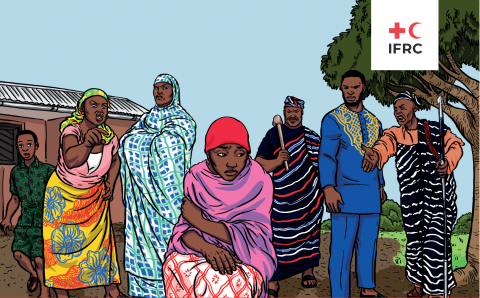
A humanitarian worker attempts to engage in sexual activity with a community member they are supporting through the project.
A woman gives her consent to have sex with her employer in exchange for a paid staff/volunteer position.
A humanitarian worker is “satisfying their own sexual needs and desires” within the affected community without understanding the power dimension.
A humanitarian worker uses sex trade workers outside work hours.
